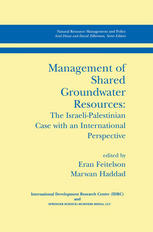

Most ebook files are in PDF format, so you can easily read them using various software such as Foxit Reader or directly on the Google Chrome browser.
Some ebook files are released by publishers in other formats such as .awz, .mobi, .epub, .fb2, etc. You may need to install specific software to read these formats on mobile/PC, such as Calibre.
Please read the tutorial at this link: https://ebookbell.com/faq
We offer FREE conversion to the popular formats you request; however, this may take some time. Therefore, right after payment, please email us, and we will try to provide the service as quickly as possible.
For some exceptional file formats or broken links (if any), please refrain from opening any disputes. Instead, email us first, and we will try to assist within a maximum of 6 hours.
EbookBell Team

5.0
48 reviewsMost of the world's freshwater resources in the liquid state (i.e. not in glaciers and polar caps) are underground. As the population grows and demand for water rises, reliance on groundwater increases. In many cases the groundwater underlies boundaries, or is part of a hydraulic system that crosses boundaries. In such cases there is always the danger that the 'prisoner's dilemma' will run its course and all parties will compete over who will pump the most water, ultimately destroying the storage potential to the detriment of future generations of all parties reliant on the groundwater. This book explores the options and means for averting this all too realistic scenario by managing these shared groundwater resources.
Nowhere is the likelihood of excessive use of groundwater greater than in the water-scarce Middle East, and especially in the Israeli-Palestinian case. Here both sides are heavily reliant on a shared aquifer, the Mountain aquifer. This book is the outcome of a seven-year effort to find ways to manage the Mountain aquifer, perhaps the most important resource shared by Israelis and Palestinians. As part of this cooperative study, four workshops were held in which a selected number of Palestinian, Israeli, and foreign experts were invited. The chapters in this book were originally presented in one of these workshops. To these papers introductory and concluding chapters were added.